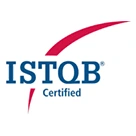Benefits of Software Testing Services
Improved Functionality:
Detects and rectifies functional defects, ensuring a seamless user experience.
Enhanced Performance:
Identifies bottlenecks, enabling smooth operation even under high loads.
Compliance with Standards:
By conducting tests such as W3C compliance testing, businesses can ensure adherence to global standards, which is critical for credibility and legal compliance.
Cost Efficiency:
Detecting and resolving issues early in development reduces the cost of post-launch fixes, which can often be resource-intensive.
Market Readiness:
Accelerates time-to-market by delivering a reliable product.
Steps in Software Testing Services
Requirement Analysis: Testers collaborate with stakeholders to understand requirements, ensuring all aspects of the application are covered during testing.
Test Planning: A detailed plan outlines the testing strategy, scope, resources, and timelines. This ensures clarity and accountability across teams.
Test Case Design: Test cases are created to cover functional and non-functional aspects of the software, providing a structured approach to testing.
Test Execution: Both manual and automated tests are executed to identify and log defects for resolution.
Defect Management: Testers document defects, prioritize them based on severity, and track their resolution to ensure all issues are addressed.
Test Closure: Upon completion, test results are analyzed to validate that the software meets the required quality benchmarks.
Types of Software Testing Services
Unit Testing: Verifies individual components or modules of the software for correctness.
Integration Testing: Checks the interaction between integrated modules to ensure they work together seamlessly.
System Testing: Tests the entire system’s functionality, performance, and compliance.
Acceptance Testing: Conducted by end-users or clients to ensure the software meets business requirements.
Performance Testing: Performance testing services evaluate the software’s responsiveness, stability, and scalability under varying workloads.
Security Testing: Security testing services identify vulnerabilities and ensure robust protection against potential threats.
Automation Testing: Uses tools and scripts to execute tests, reducing human intervention and improving efficiency.
Manual Testing: Involves human testers executing test cases to identify issues that require intuitive evaluation or are too complex for automation.
Conclusion
Investing in software testing services is a strategic decision that ensures
high-quality, market-ready products. By addressing both functional and
non-functional aspects, testing reduces risks, improves user satisfaction,
and accelerates time-to-market. For businesses in the UAE, partnering with
an experienced software testing services company ensures that your applications
are reliable, secure, and aligned with industry standards like W3C compliance.
Frequently Asked Questions (FAQs)
Testing identifies and resolves defects, ensuring product quality, reliability, and user satisfaction.
W3C compliance testing ensures web applications adhere to international web standards, enhancing accessibility and user experience.
Regression testing ensures that updates or changes do not affect existing functionalities.
Consider factors like expertise, service offerings, scalability, and use of advanced tools.
Industries like healthcare, finance, e-commerce, and manufacturing benefit significantly from software testing services.
























































